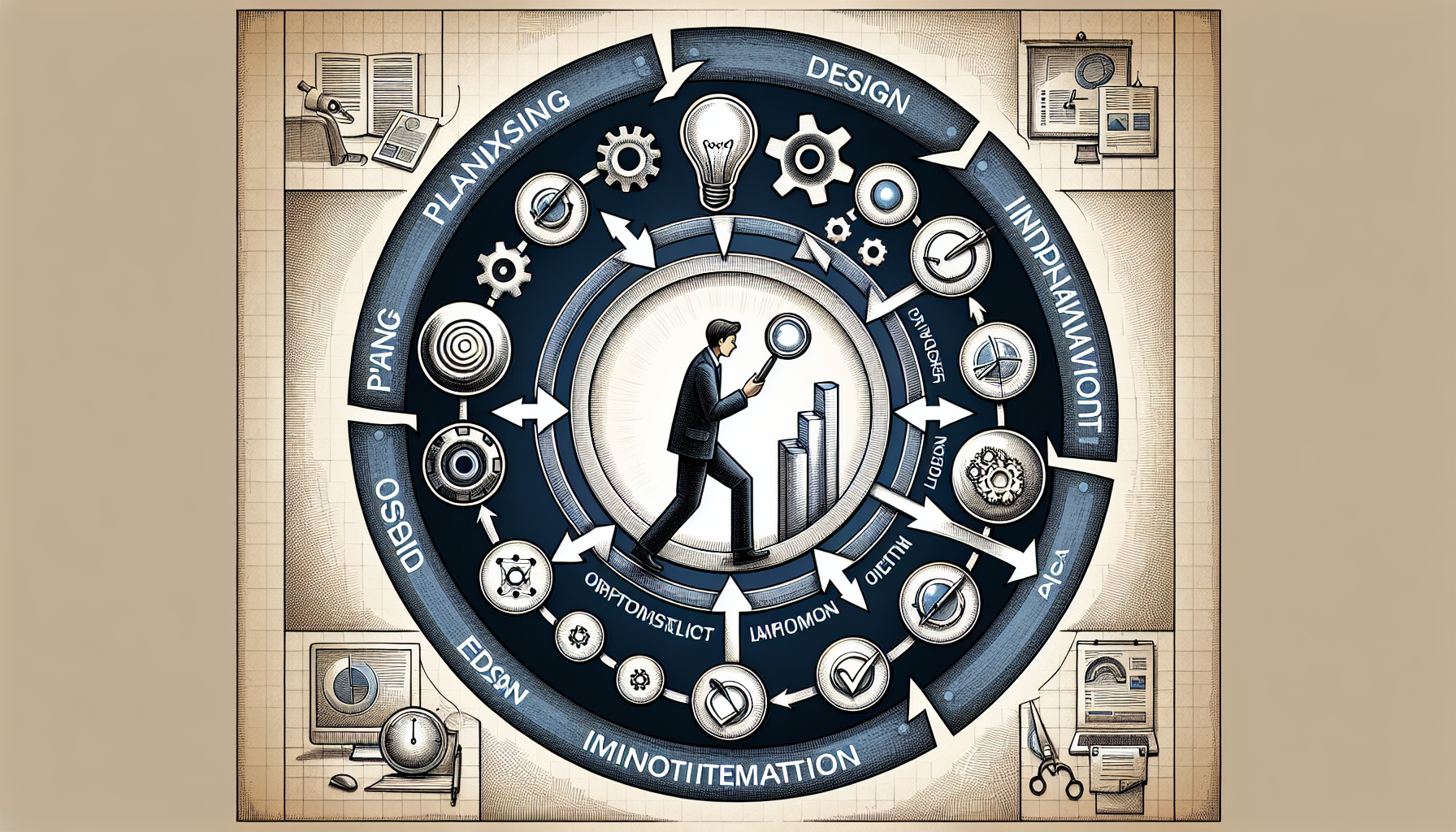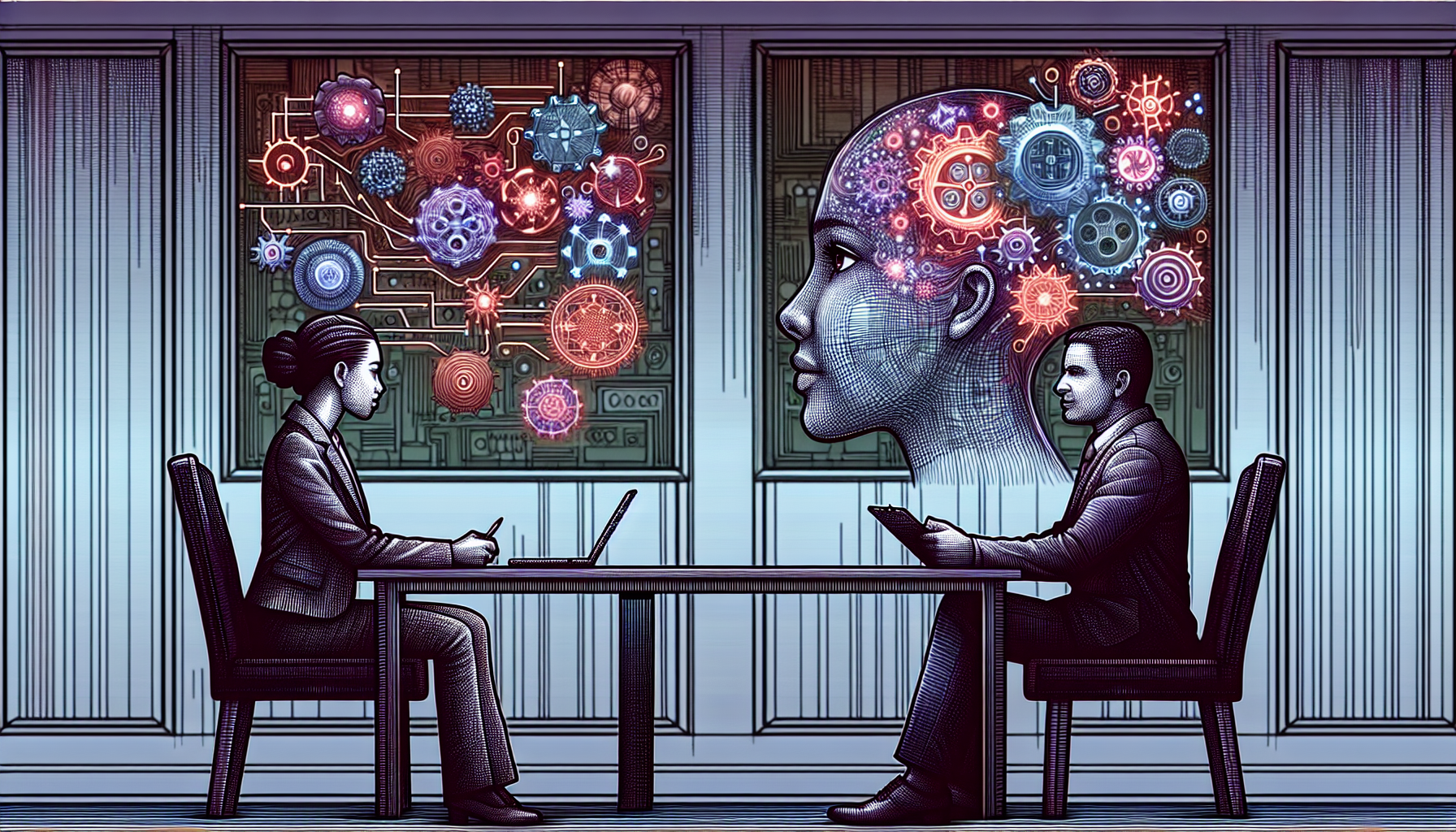
Top 12 Common Interview Questions for a Software Developer Role (+ Answers)
Aug 16, 2024Do you want to know what questions you’ll get in a software developer interview in 2024? Well, you are in luck. Having been a hiring manager for a large variety of developer and software engineer interviews in my 14+ year career, I have hundreds of interviews to pull knowledge from what worked for me and others I have collaborated with on the hiring process as I was searching for the right candidate. Knowing these will give you confidence and preparedness. I’ll cover the questions to be expected and give sample responses that will help you prepare your answers. Let's get started.
Key Takeaways (TLDR)
- Study the job role in detail. The employer is telling you what they want so understand that in excruciating detail and map your profile/resume to the job description provided.
- Create a list of 5-8 strong stories of times in your career where you demonstrated your strengths most visibly. These will be important scenarios/examples to have top of mind as you are asked to recall situations when you did (fill in the blank).
- Don't fall for the common myth that you need to practice code interview questions for nights on end - I have personally been offered roles even without nailing the programming portion of the interview. Soft skills and strong examples of those skills in action are the most important to display.
- Technical questions may cover programming languages, database differences, security practices, and specific algorithms to show your depth of knowledge and problem-solving skills. This topic will vary based on the position you are applying for.
- Behavioral and cultural fit questions are just as important to show you can handle feedback, make big project decisions, and stay updated with industry trends so you fit into the company’s culture.
Now, let's get into the details—feel free to skip to the section of questions and answers that most pertains to you.
Introduction
The success of your interview is heavily influenced by the preparation you’ve done before, and trust me, it’s obvious to the interviewers that candidates have prepared well. While these questions may seem basic, they are some of the most important questions for which to have answers prepared. Master these and you will be ahead of 90% of your competition. One last reminder: Don't take and repeat these sample responses on your interview - use them as inspiration as you brainstorm how to present your story in the best light possible.
Background and Past Projects Questions

1. Describe a challenging project you've had to work on recently. Was it completed successfully? How did you contribute to its success?
One of the most important details you should be prepared to speak to is a complex or challenging project or task that you have worked on. Be sure to pick a story that demonstrates a wide variety of skills and especially the ones that best match the job description for the role for which you are applying.
Sample response:
"Recently, I led a team tasked with migrating our company's legacy monolithic application to a microservices architecture. This was challenging due to the system's complexity, tight deadlines, and the need to maintain uninterrupted service for our users.The project was completed successfully within the 6-month timeframe. We broke down the monolith into 12 distinct microservices, improved overall system performance by 40%, and reduced deployment times from hours to minutes.My contributions to the project's success included:
- Architecting the overall microservices structure and defining service boundaries.
- Implementing a robust API gateway to manage inter-service communication.
- Designing and implementing a comprehensive testing strategy, including unit, integration, and end-to-end tests.
- Leading daily stand-ups and bi-weekly sprint planning sessions to ensure team alignment and progress.
- Mentoring junior team members on microservices best practices and Docker containerization.
A key challenge we faced was data consistency across services. I proposed and implemented an event-driven architecture using Apache Kafka, which significantly improved data synchronization and system reliability.This project not only met our technical goals but also improved our team's collaboration and DevOps practices. It was a great learning experience in managing complex system migrations while maintaining production stability"
Why it's effective:
-
Describes a specific, relevant, and complex project (monolith to microservices migration) that demonstrates what software engineering skills YOU leveraged as part of this effort.
-
Provides quantifiable results and concrete metrics, showing the project's success and impact (AND that you took the time to know and understand these quantifiable impacts).
-
Highlights leadership, teamwork, and mentoring abilities, which are crucial for senior engineering roles. If those don't apply in your scenario - focus on similar soft skills as this is your chance to do so and give credence to your statements of what skills you posses.
-
Showcases technical depth by mentioning specific technologies and problem-solving approaches (e.g., API gateway, event-driven architecture).
-
Demonstrates project management skills and a growth mindset, while aligning well with typical software engineering job requirements.
2. What’s Your Biggest Professional Achievement?
When asked to tell about our successes in developer interview questions it’s like looking back at the mountains we’ve climbed. I use the STAR method in these interviews to tell a story of challenges, strategies, and results.
Sample Response:
"My biggest professional achievement was leading the development of a real-time data analytics platform that increased our client's operational efficiency by 30%. The project required overcoming significant technical challenges, particularly in ensuring low-latency data processing. By implementing innovative caching strategies and optimizing our database queries, we reduced response times from minutes to seconds. This solution not only exceeded the client's expectations."
Why it's effective:
-
Highlights a specific, impactful project with quantifiable results (30% efficiency increase).
-
Demonstrates technical expertise by mentioning relevant technologies and problem-solving approaches.
-
Shows leadership and the ability to overcome challenges, qualities valued in senior roles.
-
Illustrates how the achievement benefited both the client and the company, showing business acumen.
3. What do you like most about being a software engineer?
Interviewers often want to know why you do what you do and use it as a means to gauge your engagement level as an employers and dedication as a worker to your craft. The key here is to focus on being genuine while saying more than "getting paid good money." For most engineers I have met, the challenge of solving new problems is an exciting aspect of the job. Reflect and find your own "why."
Sample Response:
"What I enjoy most about being a software engineer is the constant opportunity to solve complex problems creatively. I love the process of breaking down challenges into manageable components, designing elegant solutions, and seeing my code come to life in products that have real-world impact. The field's rapid evolution also means there's always something new to learn, which keeps the work exciting and intellectually stimulating. Collaborating with talented colleagues to build innovative solutions is incredibly rewarding, and I find great satisfaction in optimizing systems for better performance and scalability."
Why it's effective:
-
The response demonstrates passion and enthusiasm for the field, which employers value.
-
It touches on both technical aspects (crafting solutions, building systems) and soft skills (collaboration), showing a well-rounded perspective.
- It's concise yet comprehensive, covering multiple facets of the job without being overly verbose.
-
The response is genuine and personal, giving insight into the candidate's motivations and values.
Technical Proficiency Questions

It is no surprise that a software developer interview will have technical questions. However, these developer interview questions are not just to show your technical skills but also to see how well you can explain complex software concepts to non-technical people. Don't underestimate the importance of this. Your ability to show this dual skill is key to showing the technical foundation of being a good software developer.
4. How do you approach debugging a complex issue?
Understanding how to debug a complex issue is a crucial skill that demonstrates how you solve a problem. This skill is also universal across all programming languages, which makes it an effective question for the hiring manager to ask.
Sample Response:
"When debugging a complex issue, I start by reproducing the problem consistently. I then gather all available data, including logs, error messages, and system states in order to isolate the issue. I leverage debugging tools and log analysis to trace the problem's root cause. Once I identify the cause, I develop a fix, thoroughly test it, and ensure it doesn't introduce new issues. Finally, I update our documentation and share the learnings with the team to prevent similar problems in the future."
Why it's effective:
• Demonstrates a methodical and structured approach to problem-solving
• Emphasizes the importance of reproducibility and data gathering
• Shows consideration for the broader impact (updating docs, sharing knowledge)
5. What’s the difference between SQL and NoSQL databases?
Understanding the difference between SQL and NoSQL databases is like knowing two dialects of the same language. Knowing the basics of data storage systems is a must for any developer and this basic, but important question always seems to come up in interviews.
Sample Response:
"SQL databases are relational, using structured schemas and excelling in complex queries and ACID compliance. NoSQL databases are non-relational, schema-less, and designed for flexibility and scalability with unstructured data. SQL uses SQL for querying and is typically vertically scalable, while NoSQL uses various query languages and is often horizontally scalable. The choice depends on the application's specific needs, data structure, and scalability requirements."
Why it's effective:
• Clearly outlines key differences (relational vs. non-relational, structured vs. schema-less)
• Highlights important technical aspects (ACID, scalability, query languages)
• Mentions practical considerations for choosing between them
• Concise yet comprehensive, covering major distinguishing factors
• Avoids bias, presenting both options objectively
6. How Do You Keep Your Code Secure?
Secure coding practices are becoming increasingly important. While I haven't seen this interview question as often in the past, given the renewed security focus of many larger (and smaller) companies, I have seen it be used much more frequently in recent interviews.
Sample Response:
"In my code projects, I prioritize security by using code linters, conducting peer reviews, and implementing unit tests to catch vulnerabilities early. I follow the principle of least privilege in the application architecture, use parameterized queries to prevent SQL injection, and employ strong encryption for sensitive data. Additionally, I regularly update my development environment tools and dependencies."
Why it's effective:
- Focuses specifically on custom code project practices
- Mentions concrete tools and techniques used in the development process
- Addresses both code-level and project-level security measures
- Demonstrates awareness of common security vulnerabilities in custom code
- Balances technical specificity with clear, understandable language
Software Development Process Questions

Knowing the software development process which includes object-oriented programming is a detailed and creative process that turns an idea into a working program through a series of steps from start to finish. As a software developer you need to know this lifecycle and the methodologies like Agile and Waterfall. You need to show how you can effectively work within a software project using this framework.
7. Can you walk me through the steps of the Software Development Lifecycle?
Showing an understanding of the overall process in which you work is important. This question will primarily show up for more junior to mid-levels of software engineering roles. Know the basics and be concise - it is easy to expand too much on points that don't matter and lose precious time to sell your skills in other interview questions.
Sample Response:
"The software development lifecycle typically involves six main phases:
- Planning: Define project scope, objectives, and resources.
- Analysis: Gather and document requirements from stakeholders.
- Design: Create the software architecture and detailed design.
- Implementation: Write code based on the design specifications.
- Testing: Perform various tests to ensure quality and functionality.
- Deployment: Release the software to users and provide ongoing support.
Throughout these phases, we employ iterative processes, continuous integration, and regular stakeholder feedback. This ensures flexibility, early error detection, and alignment with user needs. The exact implementation may vary depending on the chosen methodology, such as Agile or Waterfall, but these core phases generally remain consistent."
Why it's effective:
- Clearly outlines the main phases of the software development lifecycle
- Mentions important concepts like iterative development and continuous integration
- Acknowledges variations in methodology (Agile, Waterfall)
- Shows awareness of stakeholder involvement and user-centric approach
- Implies flexibility and adaptability in applying the process
8. How do you estimate projects?
Project estimation is all about finding the balance between anticipation and adaptability. Project stakeholders need rough estimate information to assist with prioritization, making this a critical skill to have as a software developer. For this question, be sure to have examples of how you estimated prior projects.
Sample Response:
"To estimate software development projects, I use a combination of techniques. First, I break down the project into smaller, manageable tasks. Then, I apply methods like function point analysis or story point estimation, depending on the project's nature. I also consider historical data from similar projects and consult with team members to leverage their expertise. I account for complexities, potential risks, and buffers for unforeseen issues. Additionally, I use tools like PERT or Monte Carlo simulations for more complex projects. Throughout the process, I communicate clearly with stakeholders about the estimates and their confidence levels, ensuring transparency and managing expectations."
Why it's effective:
- Demonstrates a structured approach to estimation
- Shows familiarity with multiple estimation techniques (function point, story point)
- Highlights collaborative approach by mentioning team consultation
- Shows consideration of project complexities and risks
- Demonstrates awareness of estimation challenges and mitigation strategies
- Showcases both analytical and soft skills important in project management
9. What is refactoring and why is it important?
Understanding code hygiene and why it matters is a key part of being a software developer. This is your chance to show what you know in terms of best practices and how to strategically fit in refactoring work as part of your everyday work as a developer.
Sample Response:
"Refactoring is the process of restructuring existing code without changing its external behavior. It involves improving the internal structure of the code to make it more readable, maintainable, and efficient. Refactoring is important because it reduces technical debt, improves code quality, and makes the codebase easier to understand and modify. It can enhance performance, eliminate duplications, and make the code more adaptable to future changes. Regular refactoring helps in catching and fixing bugs early, facilitates easier testing, and ultimately leads to more robust and scalable software. While it may not add new features, refactoring is crucial for the long-term health and sustainability of a software project."
Why it's effective:
- Explains the purpose of refactoring (improving internal structure)
- Highlights key benefits (readability, maintainability, efficiency)
- Introduces important concepts like technical debt
- Demonstrates understanding of long-term software development concerns

Behavioral and Cultural Fit Questions
Technical proficiency is just a fragment of what’s required. Your compatibility with the company’s culture and team dynamics holds parallel significance. Behavioral interview questions are designed to reveal insights about your method of working, how you engage in teamwork and respond to feedback, as well as your flexibility when faced with changes.
10. How Do You Handle Feedback and Criticism of Your Code?
The ability to embrace feedback is in direct relation to how "coachable" you as an individual is. The importance of this trait cannot be understated. Be sure to have several examples of how you have demonstrated this in your past life experiences.
Sample Response:
"I view feedback and criticism as valuable opportunities for growth and improvement. When receiving feedback, I listen attentively and ask clarifying questions to fully understand the concerns. I avoid becoming defensive and instead focus on the technical merits of the feedback. I carefully consider how to implement suggested changes to improve code quality, efficiency, or readability. If I disagree with certain points, I engage in constructive dialogue, presenting my reasoning clearly and remaining open to alternative perspectives. I use code reviews as learning experiences, often researching best practices related to the feedback."
Why it's effective:
- Demonstrates a positive attitude towards feedback and criticism
- Shows active listening and engagement by mentioning asking clarifying questions
- Emphasizes professionalism by avoiding defensiveness
- Focuses on technical aspects and code improvement
11. Can You Describe a Time When You Had To Make a Difficult Decision on a Project?
In the realm of project management, making decisions is akin to an art form, especially when significant outcomes hang in the balance. Reflecting on past experiences where I meticulously assessed different options, engaged with stakeholders for their insights and arrived at a decision that aligns most favorably with the objectives of the project illustrates my adeptness in managing projects and my dedication to achieving high-quality results.
Sample Response:
"On a recent project, we faced a critical decision between meeting a tight deadline and addressing newly discovered security vulnerabilities. The deadline was crucial for market positioning, but the vulnerabilities posed significant risks. After thorough analysis, I recommended delaying the release by two weeks to fix the security issues. I presented a clear risk assessment to stakeholders, outlining potential consequences of both options. We ultimately prioritized security, implemented fixes, and launched a more robust product. This decision, while difficult, strengthened our reputation for reliability and actually improved our market position in the long run."
Why it's effective:
- Presents a specific, relevant scenario demonstrating decision-making skills
- Shows consideration of multiple factors (deadline, security, market position)
- Demonstrates analytical thinking and risk assessment abilities
- Highlights communication skills in presenting to stakeholders
- Illustrates leadership in making and standing by a difficult decisions
12. How Do You Stay Updated With the Latest Trends and Technologies in Software Engineering?
In the dynamic realm of software engineering, it’s imperative to stay up-to-date. For this reason, this is a common question that you will run across. The most important reminder here is to be honest. Don't say you subscribe and read newsletters if you don't - the interviewer may ask you which ones you subscribe to and having no answer will cause your perception of trustworthiness to take a nosedive. In everything you do, have integrity and be honest.
Sample Response:
"I stay updated through a combination of methods. I regularly follow tech blogs, podcasts, and newsletters from industry leaders. I dedicate time each week to experiment with new tools or languages, often through side projects. Participating in local developer meetups and online communities helps me stay connected with peers and learn about real-world applications of new technologies. Additionally, I make use of online learning platforms to take courses on emerging topics in software engineering."
Why it's effective:
- Demonstrates a proactive and multifaceted approach to learning
- Shows engagement with both online and offline resources
- Indicates practical application of knowledge through experimentation and side projects
- Highlights involvement in professional communities
- Balances self-directed learning with structured courses
Summary
The most important thing to remember in this process is that you need to make a compelling case for why you would be a valuable investment for the company. They are your audience, so focus on highlighting the skills and abilities that will help you succeed in the role they are offering. While demonstrating your technical skills is important, it is crucial to emphasize your passion, your willingness to grow, and your compatibility with the team, as these are key factors in their decision-making process.
Still need more support? I provide coaching services to provide tailored support for your upcoming job interview or overall career journey. Contact me here to get started.
Stay connected with news and updates!
Join my mailing list to receive the latest news and updates from me.
As a privacy advocate myself, I care about digital privacy and will never resell your data to third parties.
